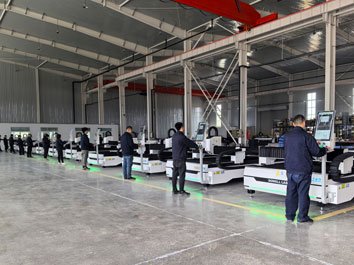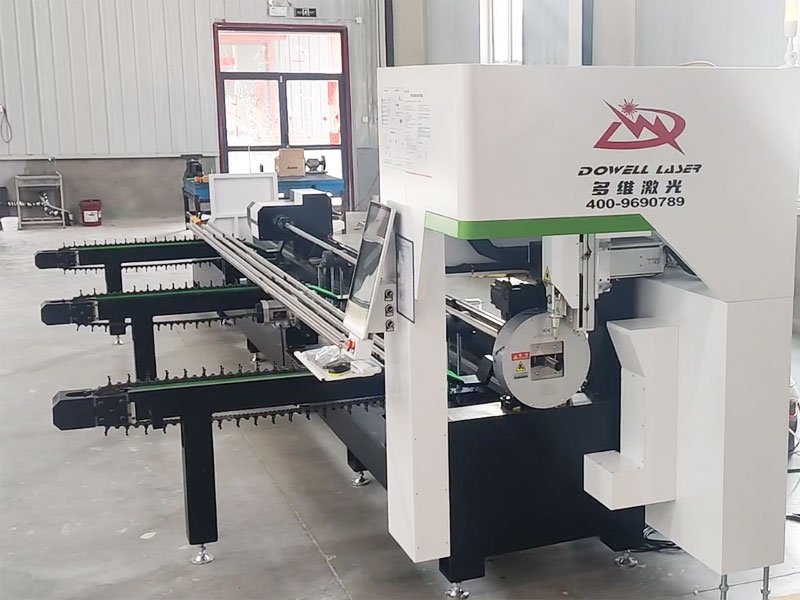There are many types of industrial laser cutting machines on the market, which are divided into fiber laser cutters and CO2 laser cutters according to the types of fiber lasers. The CO2 laser cutting machine first appeared, and later with the development of science and technology, the fiber laser cutting appeared.
Two of the most prominent types of laser cutting technologies are CO2 and fiber lasers. Both have their unique strengths and applications, choosing between the two is a critical decision for manufacturers.
There are many differences between CO2 and fiber laser cutting, this article will tell you.

Co2 laser vs fiber laser
CO2 laser is a gas beam obtained by exciting carbon dioxide molecules, and its wavelength is 10.6 μm;
fiber laser has a wavelength of 1.08 μm.
The physical characteristic of different wavelengths has a great influence on the processing characteristics of the two.
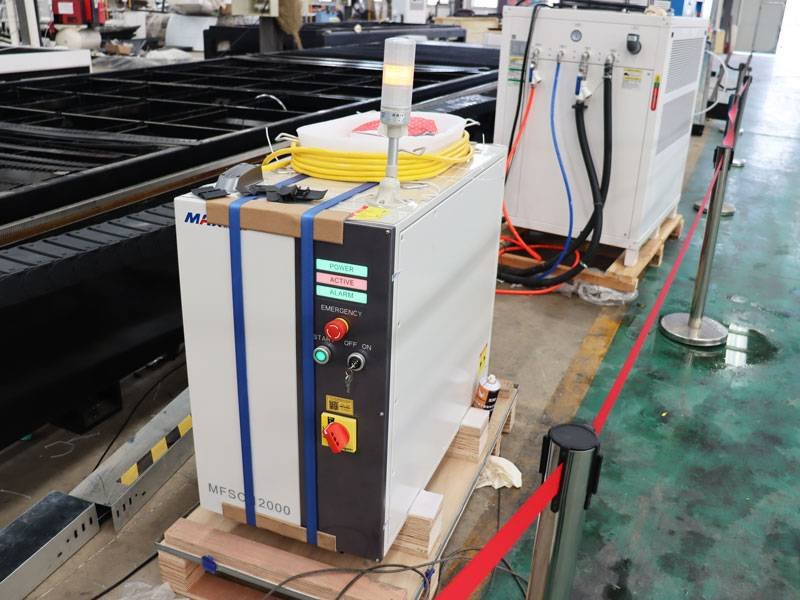
Fiber laser vs co2 cutting
What is a CO2 laser cutting machine
CO2 laser cutting machine cuts non-metallic materials, and it is best to use optical fiber or YAG equipment for cutting metal materials.
What is a fiber laser
The laser cutting machine is mainly used to cut metal materials. During the cutting process, the beam is focused into a small focus through the lens, and the focus reaches high power density. The cutting head is fixed on the z-axis. The high energy generated rapidly heats up to the melting and vaporization temperature to achieve the cutting effect.
Advantages of c02 vs fiber laser
The main advantage of CO2 lasers is their versatility. They can handle a wide range of materials and thicknesses, making them a popular choice for industries that require diverse cutting needs. Additionally, CO2 lasers excel in engraving applications, delivering high-quality, detailed results.
Fiber lasers offer several advantages. More energy efficient, requiring less power to achieve the same cutting speed. Smaller focal diameter, resulting in a smaller heat-affected zone, which results in higher precision and less material distortion.
Limitations: difference between fiber laser vs co2 laser
CO2 lasers are generally less efficient than fiber lasers and require more power to operate. They also have difficulty cutting highly reflective metals such as aluminum and copper, which can reflect the laser beam and cause damage to the machine.
Fiber lasers are not as versatile as CO2 lasers. Non-metallic materials such as wood and plastic are difficult to cut, and they do not engrave as efficiently as CO2 lasers.
Fiber laser vs co2 laser speed
The cutting speed of the fiber laser is 2-3 times that of the CO2 laser of the same power. Its advantages are particularly prominent in the cutting process of metal sheets. It has excellent performance among the other two laser cutting machines. The cutting quality is good, the gaps are small, and the edges are neat.
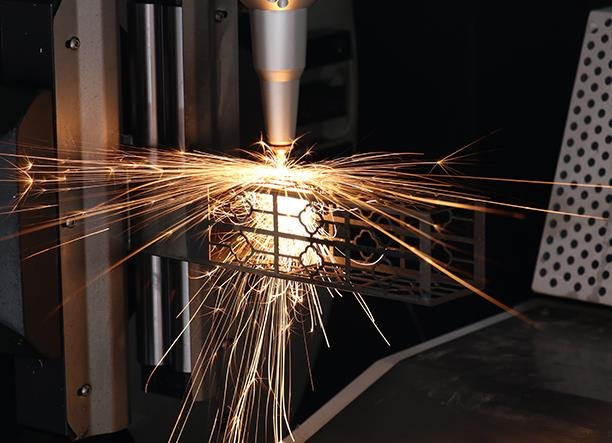
Co2 vs fiber laser wavelength
The fiber laser wavelength is 1.06μm
The CO2 laser wavelength is 10.6μm.
They are all infrared light, which can be absorbed by materials and are used in industrial material processing.
Energy consumption
The photoelectric conversion rate of a fiber laser is more than 30%, the photoelectric conversion rate of a CO2 laser cutting machine with the same power is about 10% to 15%, and the photoelectric conversion rate of a solid laser is 3%. The power consumption of fiber lasers is only 20-30% of that of CO2 lasers with the same power, and the overall cost is lower.
Advantage of fiber laser vs CO2 laser
| No. | Application Requirement | Fiber Laser | CO2 Laser |
|---|---|---|---|
| 1 | Cutting non-metals | Completely inferior. | Completely superior. |
| 2 | Cutting copper | Completely superior. | Completely inferior. |
| 3 | Cutting aluminum alloys | Has an advantage. | No advantage. |
| 4 | Cutting black metals with thickness ≤ 6mm | Advantage: Lower cost, faster speed. | No advantage: Higher cost, slower speed. |
| 5 | Cutting black metals with thickness > 6mm | No advantage. Cutting speed is comparable to CO2 lasers. Section quality and perforation efficiency are inferior to CO2 lasers. | Has an advantage: Cutting speed slightly faster than fiber lasers; better section quality; higher perforation efficiency, the time saved compensates for the higher cost compared to fiber lasers. |
Co2 vs fiber laser nitrogen consumption
The main gas consumed by CO2 lasers is carbon monoxide gas (CO2). CO2 lasers also require argon (Ar), oxygen (O2) or helium (He) as flux gas. The working principle of the CO2 laser is that the carbon monoxide gas is excited by electrons, and the photons generated are excited to the mirror of the laser, thereby generating laser light.
When laser cutting stainless steel, nitrogen is used as a protective gas. The laser directly melts the stainless steel, and the high-pressure nitrogen directly blows away the slag to form a cutting seam. If you want to save costs, you can use a large air compressor with a pressure of up to 13 kg and use air as the auxiliary gas. This way the cost is much lower.
Making the Right Choice: CO2 vs. Fiber Laser Cutting
The decision between CO2 and fiber laser cutting ultimately depends on your specific needs. If you’re working primarily with metals and require high precision and efficiency, a fiber laser may be the best choice. However, if you need to cut a wide range of materials and require high-quality engraving, a CO2 laser might be more suitable.
It’s also important to consider the long-term operating costs. While fiber lasers may have a higher upfront cost, their energy efficiency and lower maintenance requirements can lead to cost savings over time.
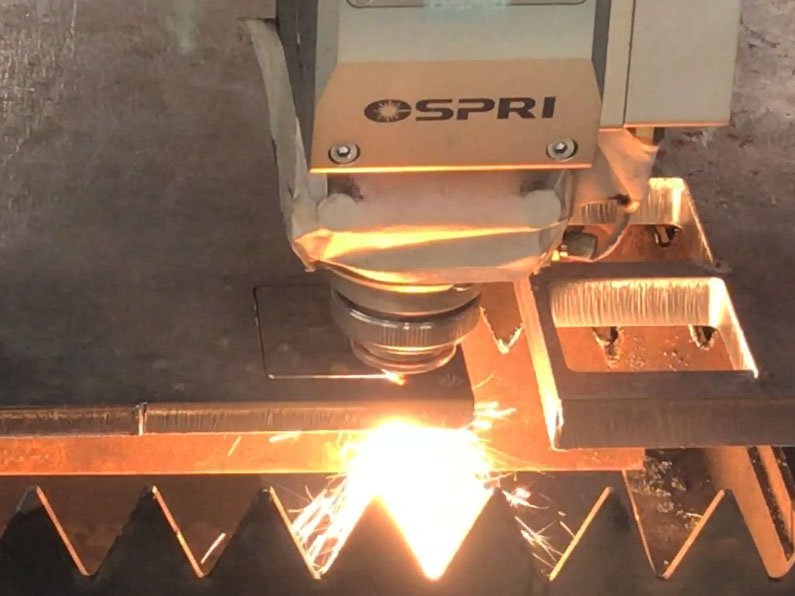
Fiber laser vs CO2 laser cost
Factors affecting the cost of lasers include power, cutting material, etc. The cost of industrial fiber lasers is around US$1,000-10,000.
Both lasers consume huge amounts of electricity. The electro-optical conversion efficiency of fiber laser is about 30%, and that of CO2 laser is about 10%. In terms of 3000W lasers, fiber lasers consume about 10kW of electricity, while CO2 lasers consume about 30kW of electricity. Assuming that the electricity price is 1 yuan/kWh and the load rate is 70%, the costs are 7 yuan/hour and 21 yuan/hour respectively.
Due to the different efficiencies, the heat generated by the two lasers is different, and the specifications (cooling capacity) of the water cooler required are also different. The power consumption of the water-cooled machine required by the fiber laser is 13kW, and the power consumption of the water-cooled machine required by the CO2 laser is 18kW. Assuming that the electricity price is 1 yuan/kWh and the load rate is 70%, the costs are 9 yuan/hour and 12.8 yuan/hour respectively.
FAQ About fiber laser vs co2 laser
Fiber laser vs co2 cost
The cost of fiber laser on the market is much higher than that of co2 laser, because the energy generated by fiber laser is relatively high and the process is more complicated.
Can a CO2 laser cut metal?
Yes, but only stainless steel and aluminum plates below 3mm can be cut.
Is fiber laser harmful to the human body?
The laser generated by fiber laser is harmful to the human body, and direct exposure to the laser beam can cause damage to the eyes and skin. Therefore, protective glasses and gloves must be worn when using fiber lasers.
What materials can fiber lasers cut?
Fiber lasers can cut a variety of metal materials, such as stainless steel, carbon steel, aluminum alloy, etc. For non-metallic materials, such as wood, plastic, etc., there is also a certain cutting ability, but the effect may not be as good as CO2 lasers.
What are the precautions for the maintenance of fiber lasers?
The maintenance of fiber lasers mainly includes regular cleaning of optical components, replacement of coolant, inspection of gas circuits, etc.
What is the application prospect of fiber lasers?
With the continuous development of laser technology, the application prospects of fiber lasers are very broad. In the future, fiber lasers will be used in more fields, such as 3D printing, micro-nano processing, etc.

